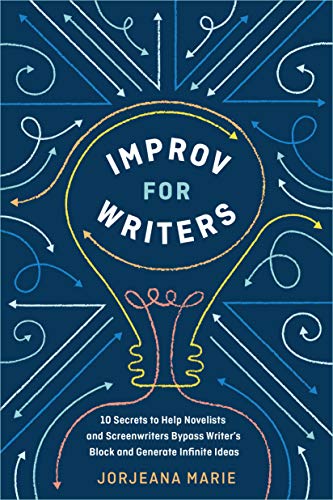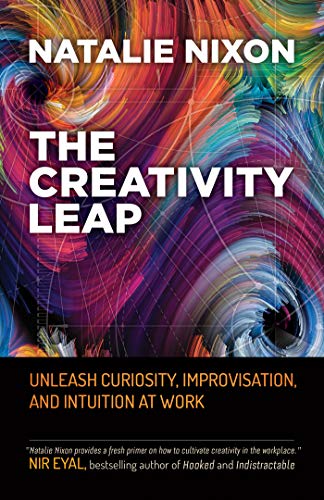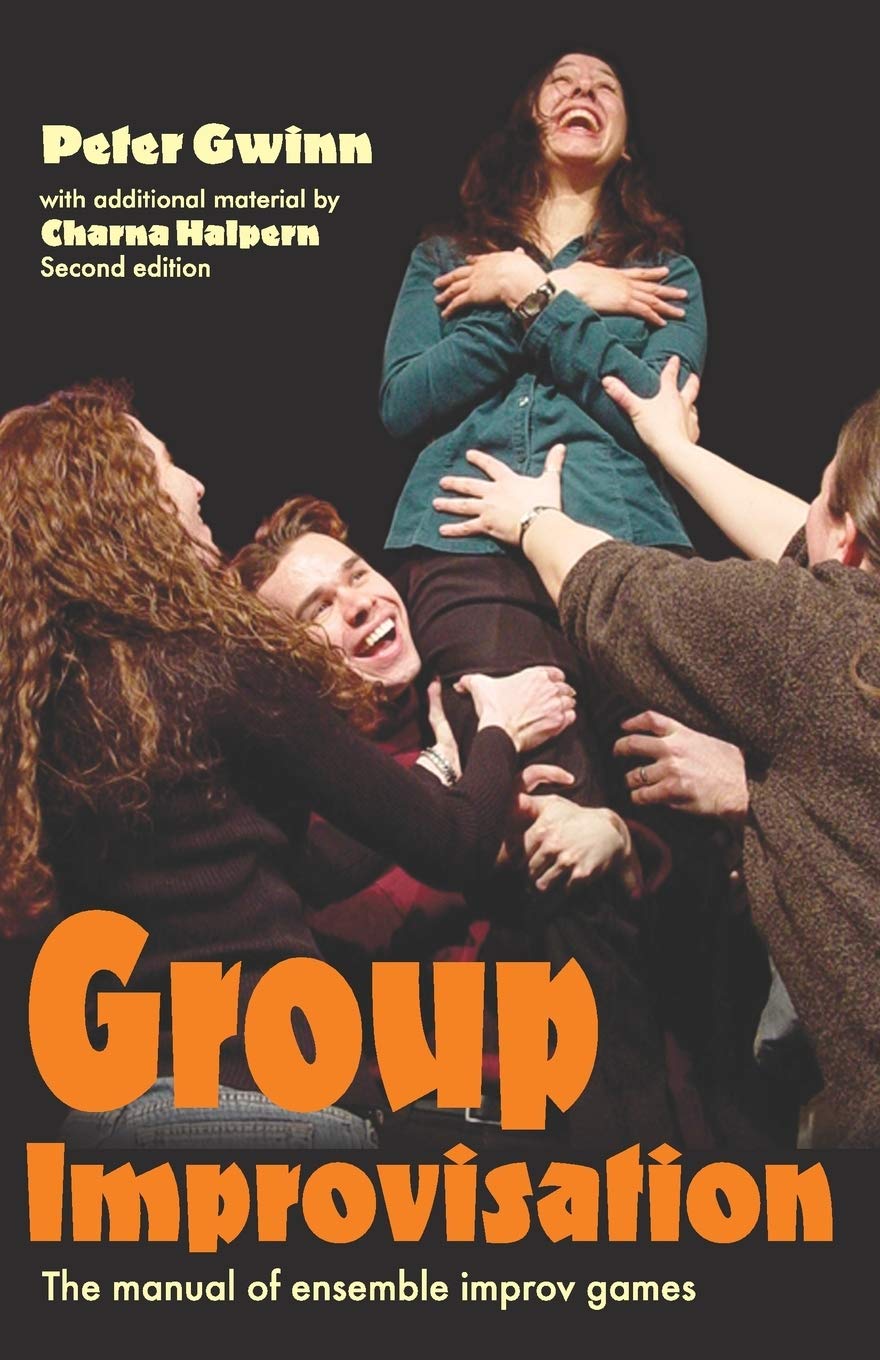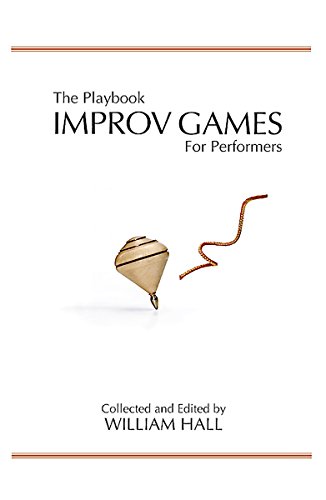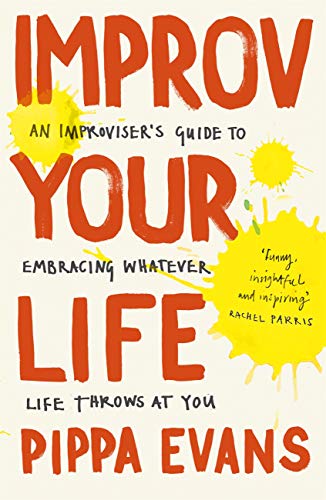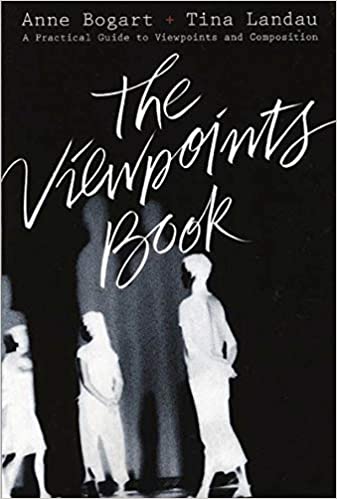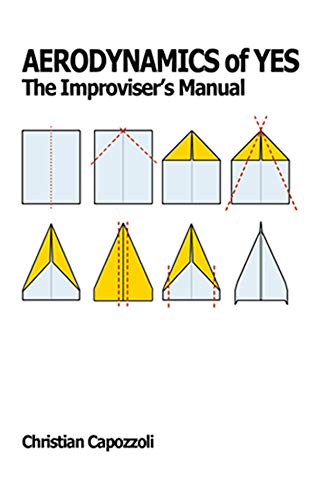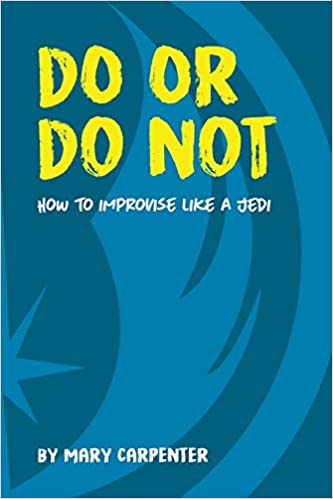Improv For Writers: 10 Secrets to Help Novelists and Screenwriters Bypass Writer’s Block and Generate Infinite Ideas Free yourself from writer’s block and inner critics with the creative power of improv! “Jorjeana Marie’s generous, joyful, and oh-so-useful book shows writers—both seasoned and new—how to unleash their creativity and find their best story.”—Gayle Forman, New York Times bestselling author of If I Stay and I Have Lost My Way Improv instructor and writer Jorjeana Marie reveals a new way to generate idea after brilliant idea. Applying the rules of improv to fiction writing, Marie presents fun games and exercises you can do from the comfort of your desk at home. Surprise yourself with new plots, infinite characters and settings, and a supreme confidence in your own process. Armed with the power of improv—and liberating exercises like Ad Agency, Raise the Stakes, and Family Portraits—you’ll soon be an idea machine. With Improv for Writers, your creative storytelling well will never run dry again.
english
“Natalie Nixon’s new book provides a fresh primer on how to cultivate creativity in the workplace.” —Nir Eyal, autor de bestsellers de Hooked and Indistractable Too many people associate creativity solely with the arts, even though to be an incredible scientist, engineer, or entrepreneur requires immense creativity. And it’s the key to developing breakthrough products and services. Natalie Nixon, a creativity strategist with a background in cultural anthropology, fashion, and service design, says that in the fourth industrial revolution a creativity leap is needed to bridge the gap that exists between the churn of work and the highly sought-after prize called innovation. Nixon says that since humans are hardwired to be creative, it is a competency anyone can develop. She shows that it balances wonder (awe, audacity, and curiosity) with rigor (discipline, skill-building, and attention to detail), and that inquiry, improvisation, and intuition are the key practices that increase those capacities. Drawing on interviews with fifty-six people from diverse backgrounds—farming, law, plumbing, architecture, perfumery, medicine, education, technology, and more—she offers illuminating examples of how creativity manifests in every kind of work. Combining creativity tools and techniques with real-world stories of innovative people and businesses, this book is a provocation, an…
Over 40 improv games for developing group chemistry are included in this concise book, organized into sections: Bonding, Focus, Awareness, Creation, Energy, Dynamics, and more. Every group, not just improv teams, benefits from increased communication, and author Peter Gwinn reveals many secrets about how to facilitate this connection in fun and creative ways. The many improv games and exercises he presents here, appropriate for high school age or older thespians, help heighten awareness, break the ice, increase concentration, and wire brains together. Gwinn and his colleagues at the iO Theater in Chicago developed the concept of “The Group Mind” to create a synergy between team members. With this increased connection, your actors feel part of a greater entity, with a sense of excitement, belonging, and importance that takes teamwork to a new level.
Improvisation games, formats and notes. Over 370 games for performance and class. This book is perfect for individuals and improv groups who want to expand their collection of games. Teachers will love the variety of drama games for their classes. Over 11 long form formats are also included. You will also find useful tips, resources as well as notes on improvisation. The games have been collected since 1986…and cover the familiar to the obscure. The Playbook offers games – from the classic to obscure – and breathes new life through variation. It includes different versions when appropriate for some of the 370 documented games, so that each ensemble can add variety to a set list, find new joy in an old format, or embrace risk by experimenting with a twist on a trusted cast/audience favorite. All the games are indexed by category. This feature is immensely helpful to performers scrambling to find just the right Audience participation, Restriction, or Music-based scene – when time is of the essence. Recall a game concept or a component, but not the title? Search and find a game multiple ways. Unfamiliar terms are explained in the short glossary. This quick tool can be a…
An improviser’s guide to embracing whatever life throws at you! PIPPA EVANS is an expert in saying Yes – and No. She’s a master of thinking on her feet, but has also had to learn how to go with the flow. In this book she’s passing on everything she’s learnt from her award winning improv career, as both a performer and teacher, so YOU can take centre stage in your own life. In telling her story, delving into the craft of improvisation, and sharing fun exercises and practice you can do at home, Pippa will help you become fully yourself – realising your potential and ability to adapt to the ever changing world around you. It’s dangerous, being yourself, but let’s just take it one step at a time. Open the book, take a breath and get ready to say YES. (If it’s a NO from you then perhaps consider buying for a friend, family member or enemy who you think needs some improv-ment)
Instant Songwriting is the ultimate how-to book for musical improvisers and an excellent resource for songwriters. With over two decades of musical improv experience, Nancy Howland Walker guides you with clear, logical and fun step-by-step exercises, from the very basics of putting a song together, to highly advanced song techniques. Whether you are new to the art form or experienced, your songs are improvised or written, or you do this for fun or profit, Instant Songwriting helps you take your song skills to the next level. Musical tracks are available to download for each exercise – to accompany you as you practice and master each step along the way. Now go and become the Songwriting Diva you were meant to be!
The Viewpoints is a technique of improvisation that grew out of the postmodern dance world. It was first articulated by choreographer Mary Overlie, who broke down the two dominant issues performers deal with—space and time—into six categories. Since that time, directors Anne Bogart and Tina Landau have expanded her notions and adapted them for actors to function together spontaneously and intuitively and to generate bold, theatrical work. The Viewpoints are a set of names given to certain principles of movement through time and space—they constitute a language for talking about what happens on stage. Coupling this with Composition, which is the practice of selecting and arranging the separate components of theatrical language into a cohesive work of art, provides theatre artists with an important new tool for creating and understanding their art form. Primarily intended for the many theatre artists who, in the last several years, have become intrigued with Viewpoints yet have had no single source to refer to in their investigations. It can also be used by anyone with a general interest in collaboration and the creative process, whether in art, business or daily life. Anne Bogart is Artistic Director of the SITI Company, which she founded with…
This book explores the Aerodynamics of Yes as an approach to celebrating one another, building ensemble and getting out of our heads and into our scenes. Good improv can seem magical, but let’s not make it more mystical than it is. Stop praying to the improv gods and take responsibility for what you can control. Sweat the technique, be empowered by it, study, be hard on yourself, understand the science and why it works. Then, trust in it, play confidently, and be excellent to each other.
Improvisation: The Guide is a bible for all teachers, actors and improvisors. It is a practical, hands-on feast of ideas, exercises and scene-work. Drama teachers at primary, secondary and university levels have found this book invaluable. The techniques have been used for corporate workshops, drama in education and professional actor training. Improvisation processes ignite spontaneity, develop lateral thinking, encourage teamwork and release the potential artist in us all.
After 25 years performing and teaching improv, and 40 plus years of devotion to Star Wars, Mary Carpenter has finally discovered a way to combine the two. Carpenter breaks down the “how-to,” and seeks out the “why” and “what else” to give you the tools to unlock your true Jedi improv powers. This book will not just teach you how to improvise, but how to become your own improviser. Buckle in because these are the droids you’re looking for, I have a good feeling about this, and it’s time to punch it Chewie!
